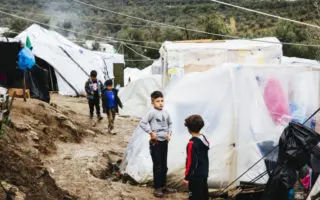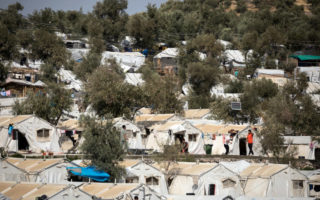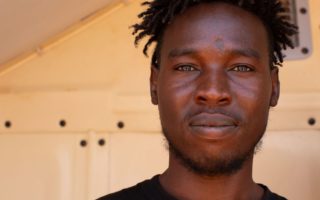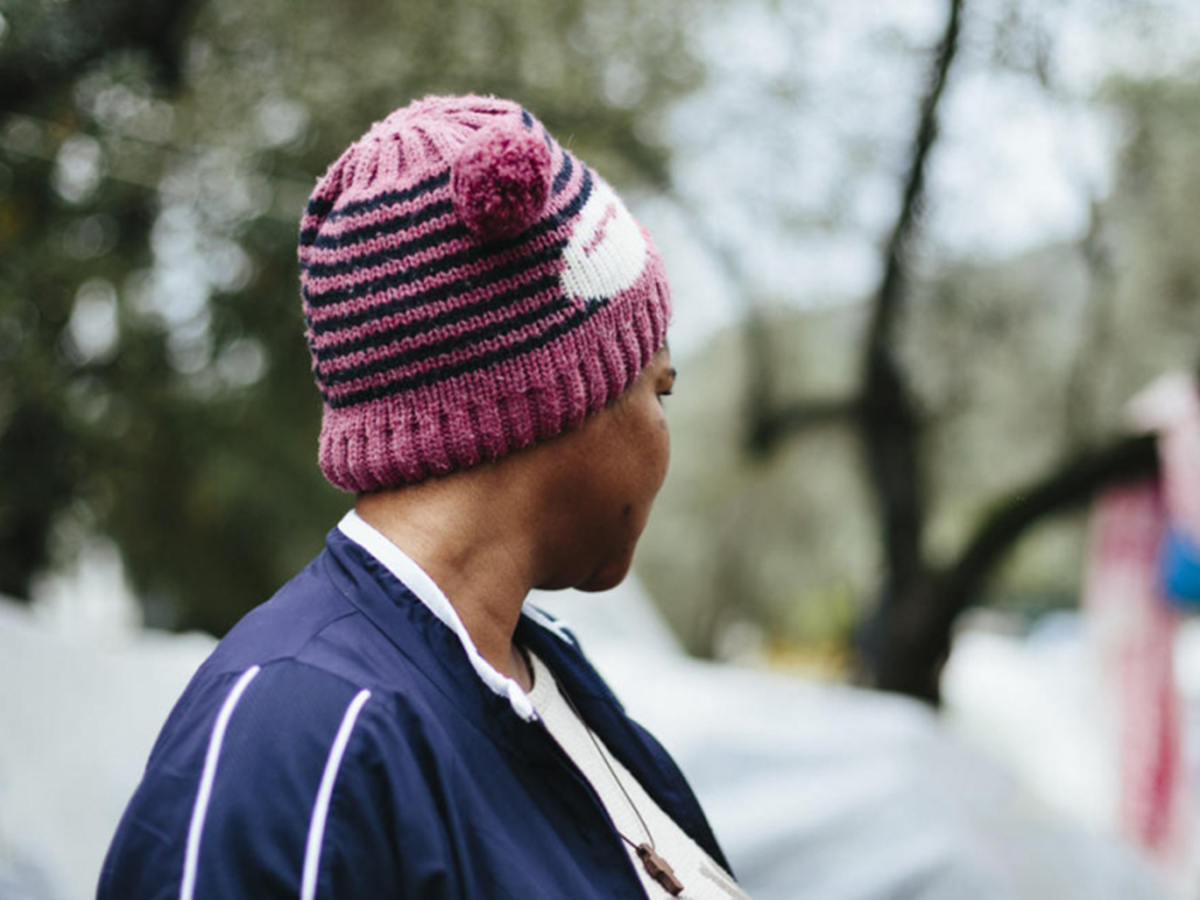
Virginie Laure, a woman from Cameroon seeking asylum in Greece, stands outside the Moria Reception and Identification Centre on the Greek island of Lesvos. © UNHCR/Achilleas Zavallis
On her way home from work, a woman in Cameroon was attacked and raped by a pack of strangers. Now seeking asylum in Greece, she is raising her voice to help others.
The nightmare that forced Virginie Laure to flee Cameroon came at the end of a normal day earlier this year. She had no idea when she went to work that morning, cutting hair at a nearby market, that her world was about to crumble.
On her way home, six men approached her on the street demanding money. When they found she had no cash, they knocked her unconscious.
“When I woke up, they told me they were going to do something I’d never seen before,” said Virginie, 39. “Then they brutalized me, one by one.”
She had heard that rapes were growing more common in her hometown in the country’s south, but nothing could prepare her for the shock.
The men said they would hunt her down if she told anyone. Undaunted, she went to the police. But the men remained at large and she realized she must flee or risk further violence.
“I didn’t feel safe in Cameroon anymore,” she said. “So many women have experienced violence in my country.”
Violence based on sexuality or gender is a global phenomenon. Women and girls bear the brunt, but men and boys also fall victim. Fear of retaliation can make survivors scared to speak out and often their experiences are disbelieved or dismissed.
Virginie fled Cameroon and reached the Greek island of Lesvos on a dinghy in September. She applied for asylum there, but her troubles are far from over. She now lives in Moria, an overcrowded reception and identification centre on the island.
Conditions are unsanitary and there is scant privacy and security. Even access to medical care is limited. Some 16,000 people are now staying at Moria, seven times its intended capacity. Reports of sexual harassment and attacks are frequent.
“When I’m alone on the street I always feel panic.”
Virginie is in a section with heightened security, sharing a small residential container with 17 single women from Somalia, Afghanistan and the Democratic Republic of the Congo. Many have experienced sexual violence at home or on their journey to Greece and live in fear of further attacks. Virginie avoids going out of the secure area.
“Women have to be careful to avoid danger here,” she said. “When I’m alone on the street, I always feel panic. When people get aggressive and there is trouble, I get the same feeling as I did then.”
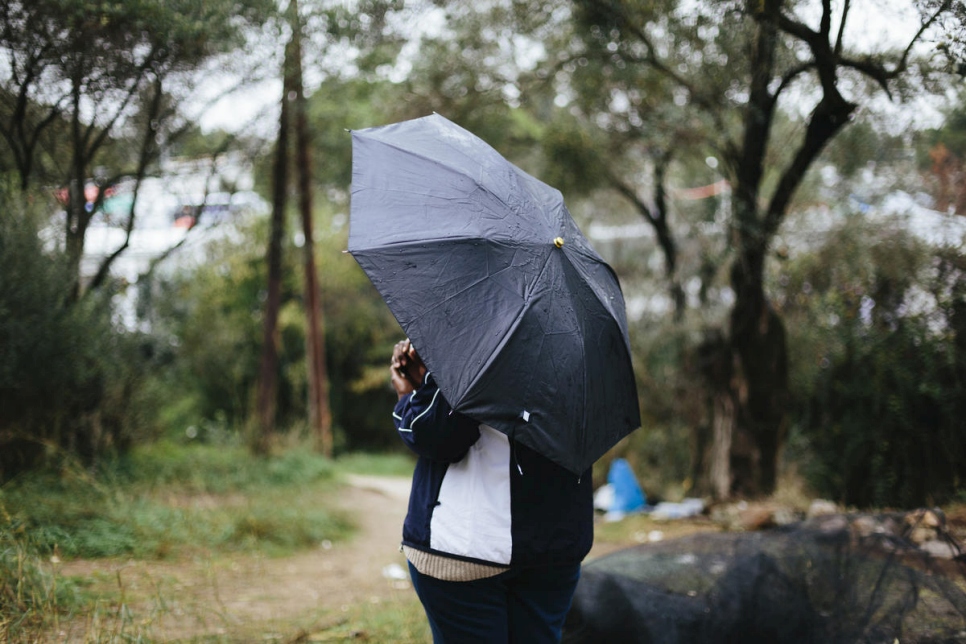
Virginie Laure, an asylum-seeker who fled Cameroon, shelters from the rain outside the Moria Reception and Identification Centre on the Greek island of Lesvos. © UNHCR/Achilleas Zavallis
UNHCR, the UN Refugee Agency, has repeatedly called for the urgent improvement of living conditions and the tackling of overcrowding in Moria and the other reception centers on the Greek Aegean islands while it continues to support the government in its refugee response.
The Greek government in November announced measures to alleviate the situation, including a pledge to transfer 20,000 people to better conditions on the mainland.
“It’s a priority for survivors like Virginie to be moved to a place (on the mainland) where they will feel secure” and can access a wider range of services, said Elina Karagiorgi, who works for UNHCR and supports survivors of sexual assault on the island.
“It’s good to talk because it feels like a liberation.”
The Greek charity Diotima works closely with UNHCR to help survivors learn about their rights and access medical and legal services. But with victims often reluctant to come forward, the biggest hurdle to that work can be identifying them in the first place.
“There is a huge stigma around sexual violence generally, but especially about rape,” said Adamantia Lambouka, a psychologist with Diotima. “But survivors are now coming forward. Somehow they overcome it.”
This month, Diotima and UNHCR have joined a host of international actors in marking 16 Days of Activism against Gender-Based Violence. The annual global campaign, which ends on 10 December, calls for the elimination of violence against women and girls.
Often, the first step towards change is to spread awareness of the problem, and that starts with a survivor telling a story. Waiting in Moria, Virginie is keen to share her story and raise her voice.
“We have to fight this problem … Women need justice,” she said.
“I would tell anyone afraid to speak that it’s good to talk because it feels like a liberation,” she said.
Originally published on UNHCR on 10 December 2019



